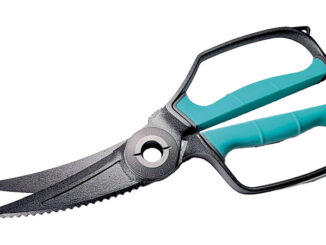
The action on spottails in the Biloxi Marsh is unbeatable for anglers carrying long rods.
It’s early December, and you’ve gotten a hot tip. Your buddy just returned from a trip to Lafitte, and he and some other friends caught redfish at will in the back of a dead-end canal.
The fish must have literally been stacked on top of one another because every cast resulted in a hit.
Your buddy shows you on a map exactly where he was, so the next day, you load your wife and kids into your truck, and tow your boat down to Lafitte.
You arrive at the canal and anchor at the exact spot your buddy told you, make the first cast, and it’s an instant hook-up. You hand the rod to one of your kids, grab another rod and the results are the same.
In short order, you’ve boated your limits, and continue to catch and release just for the sheer fun of it.
Perfect day on the water, right?
Well, it could be. But imagine how your day might go if in the next minute, a sheriff’s deputy were to show up with another man in the boat who wanted to press charges against you for fishing on his private property.
That sounds crazy, but it could happen, and it may now that a new trespassing law has gone into effect.
Until recently, Louisiana’s landowners were required to post their property if they wanted to keep hunters, bird watchers, hikers, anglers or anybody else off of it. An individual could be arrested or cited for trespassing, but only if the property were properly posted.
Now, landowners are under no obligation to post their property. No matter your intentions, if you’re caught on somebody else’s property, you could go to jail.
That has troubling repercussions for anglers. Much wintertime fishing takes place in dead-end canals, and all of these canals are privately dug. Numerous state courts have ruled that such canals, even though they are filled with the public’s water and the public’s fish, belong to the landowner, and can be gated and/or posted to keep the public out.
Now, that’s not necessary.
Even more troubling, Louisiana Sportsman has learned, is the fact that many small, shallow ponds in our marshes are not considered to be public waters, even though they’re easily accessible by bay boats and other similarly sized crafts.
To determine what the state considers private and public waters, we presented the State Land Office with a map of a random block of marsh near Theriot. Several ponds that we thought should be public, the state considers to be private.
Now, the landowner, or more aptly, waterowner, may not give a rip who fishes his ponds, but how are you supposed to know? If you go into those ponds on your next fishing outing, you’re breaking the law. It’s that simple.
The frightening thing is, there are ponds like this all across the coast. Very few are posted.
Get caught the first time, and you face a fine of not less than $100 nor more than $500 and/or up to 30 days in jail. A second conviction will get you a $300-$750 fine and/or up to 90 days in jail. All subsequent convictions will result in fines of $500-$1,000 and/or 60-180 days in jail, plus the forfeiture of all property seized during the commission of the crime, including, potentially, guns, boats, fishing rods, vehicles, etc.
That’s a high price to pay to catch what should be the public’s fish.


